Simon Tate
Your project has
entered in our festival. What is your project about?
The Unlock is a genuine first of a kind
for the feature film industry.
The actor playing the lead role, Stephen, has not seen a script and knows nothing about the story. Not even the genre of the film. He was isolated entirely from cast and crew until filming ended. Being completely in the dark even reaction is real. We call it Hyper Real filmmaking and it has never been done before.
Waking up chained to the ceiling in a warehouse somewhere in Lithuania Stephen, an ex-soldier, is faced by his interrogators. They tell him that he was involved in the kidnap of the Russian Foreign Minister by a far right group in a NATO country who will execute the Foreign Minister live on the internet in 90 minutes. An act of war between a NATO country and Russia which could trigger World War 3. They believe Stephen knows the whereabouts of the kidnapped Minister, but Stephen has amnesia and time is running out. His interrogators however have been given permission to use any means necessary to unlock his memories - and that means taking them all to some very dark places.
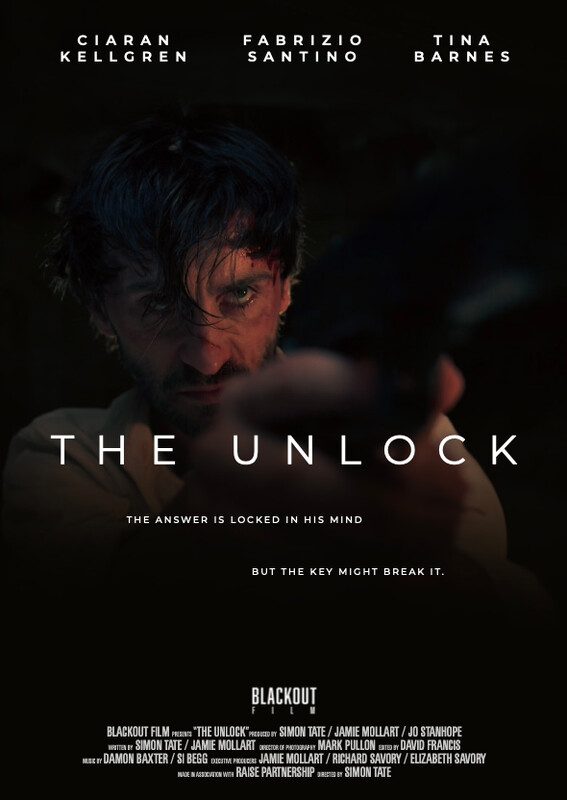
What are your
ambitions with your project?
We already have a sales agent on board
and are hitting all the major markets to secure international distribution
deals.
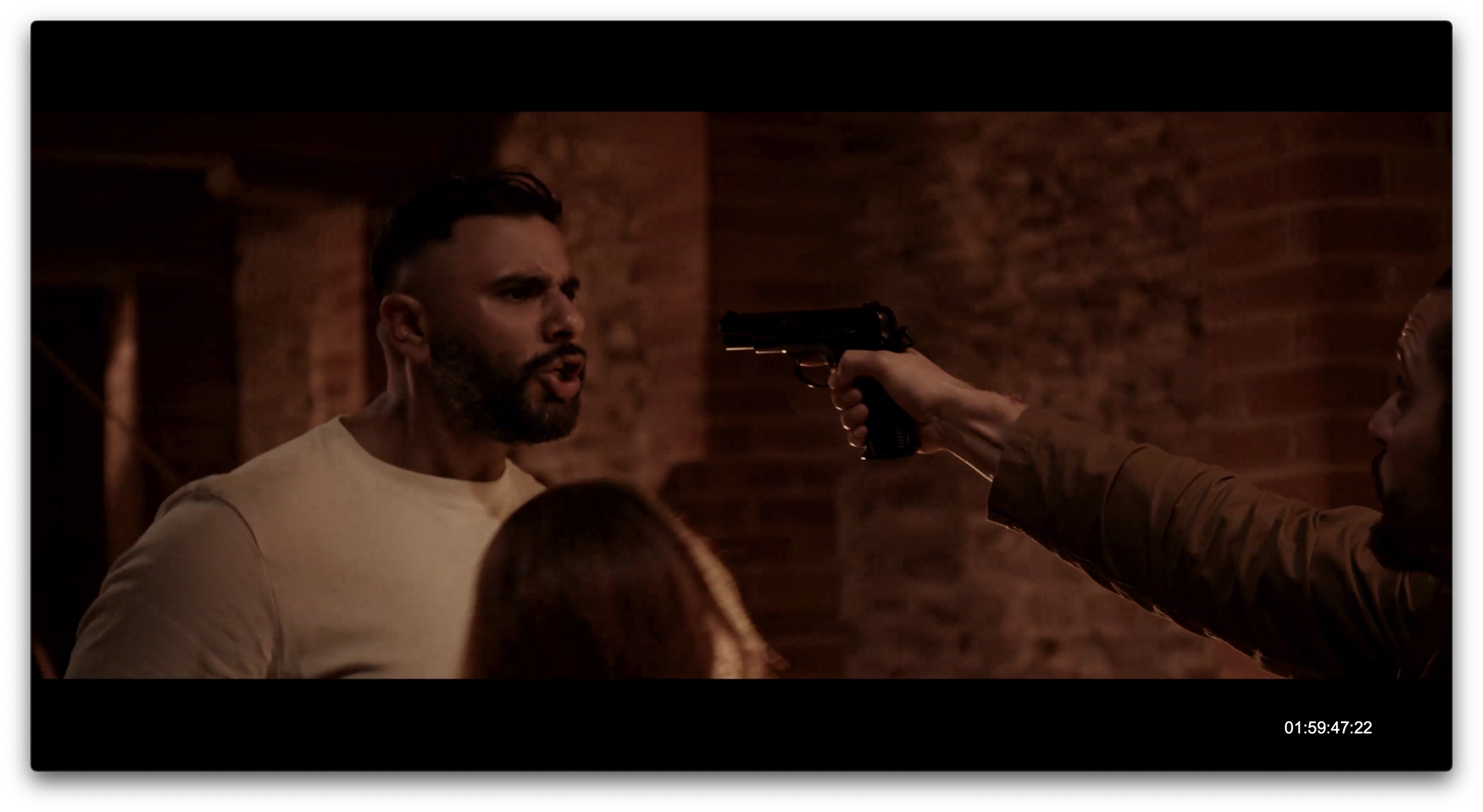
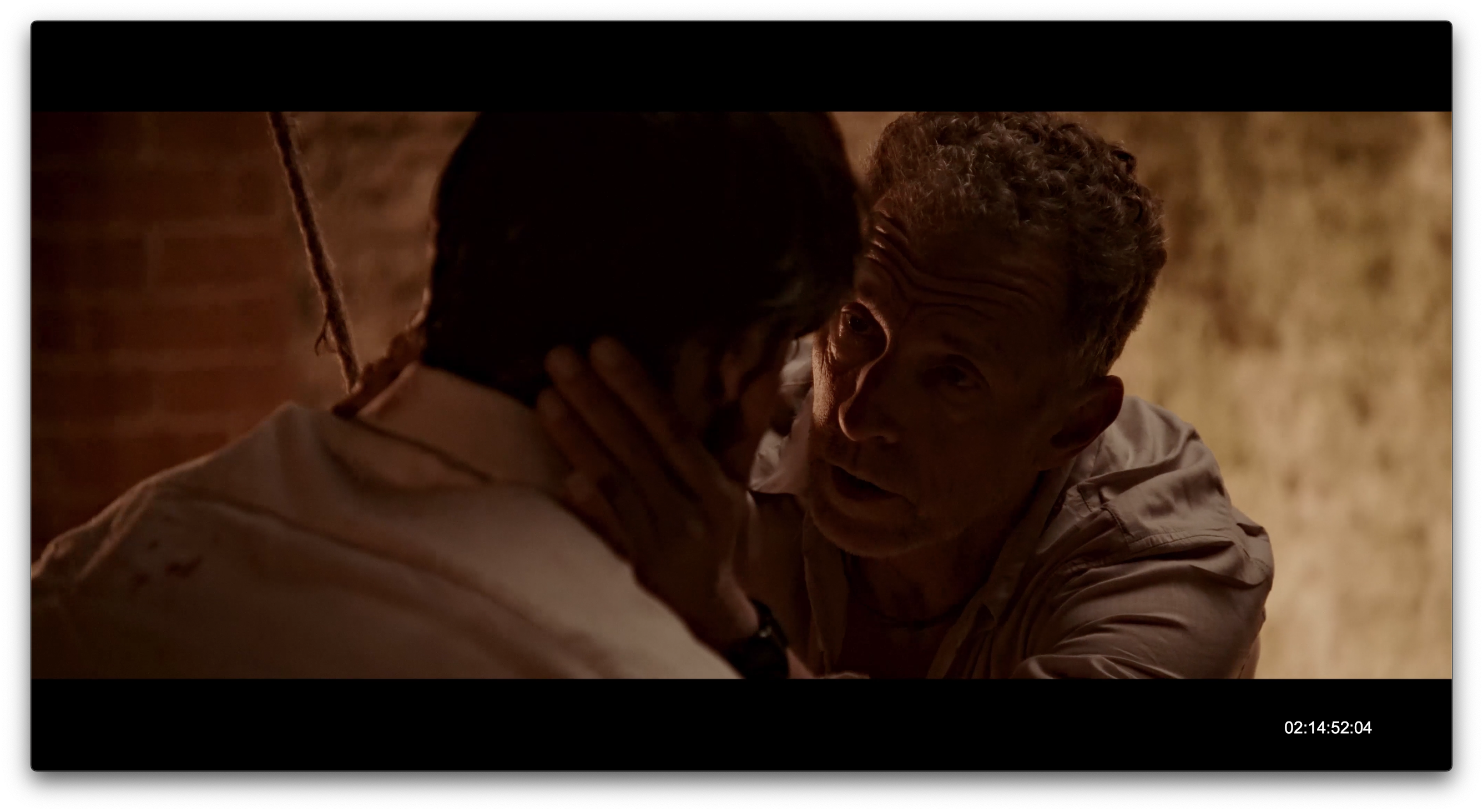
Tell us
something about your shooting? What pleasantly surprised you?
We had no idea whether or not our concept
was going to work. When you create a feature film where, on the first day of
principle photography, the actor playing the main character doesn’t know
whether he’s stepping onto the set of a rom com or a horror film, and then you
put him in a geo-political thriller, you’re in totally uncharted waters.
Our crew and cast were phenomenal at pulling it together and taking huge risks to create a strong, real-time 90 minute film.
For what group
of spectators is your film targeted?
First and foremost, anyone who loves the
thriller genre. Anyone who likes to be taken for a ride where they really don’t
know what’s going to happen next.
Secondly, for the whole filmmaking community. This is the first time in feature film history that a film has been made this way. For those filmmakers with budgets of all sizes (this was a low budget production) who want to see how a first-of-a-kind film turned out. To hopefully inspire people to take risks and ignore those who say “things can’t be done that way, because no one’s ever been able to do it in the past”. Bullshit.
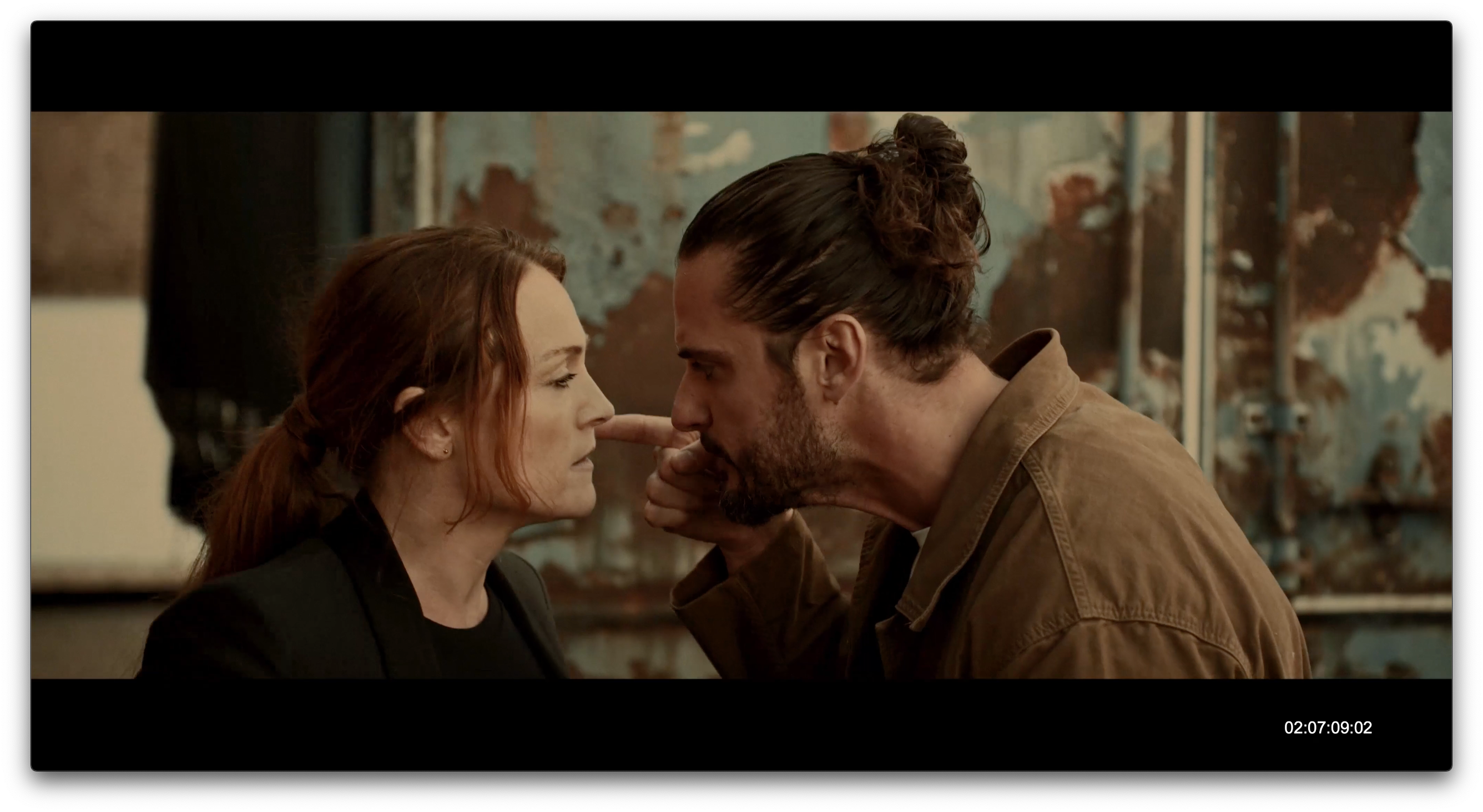
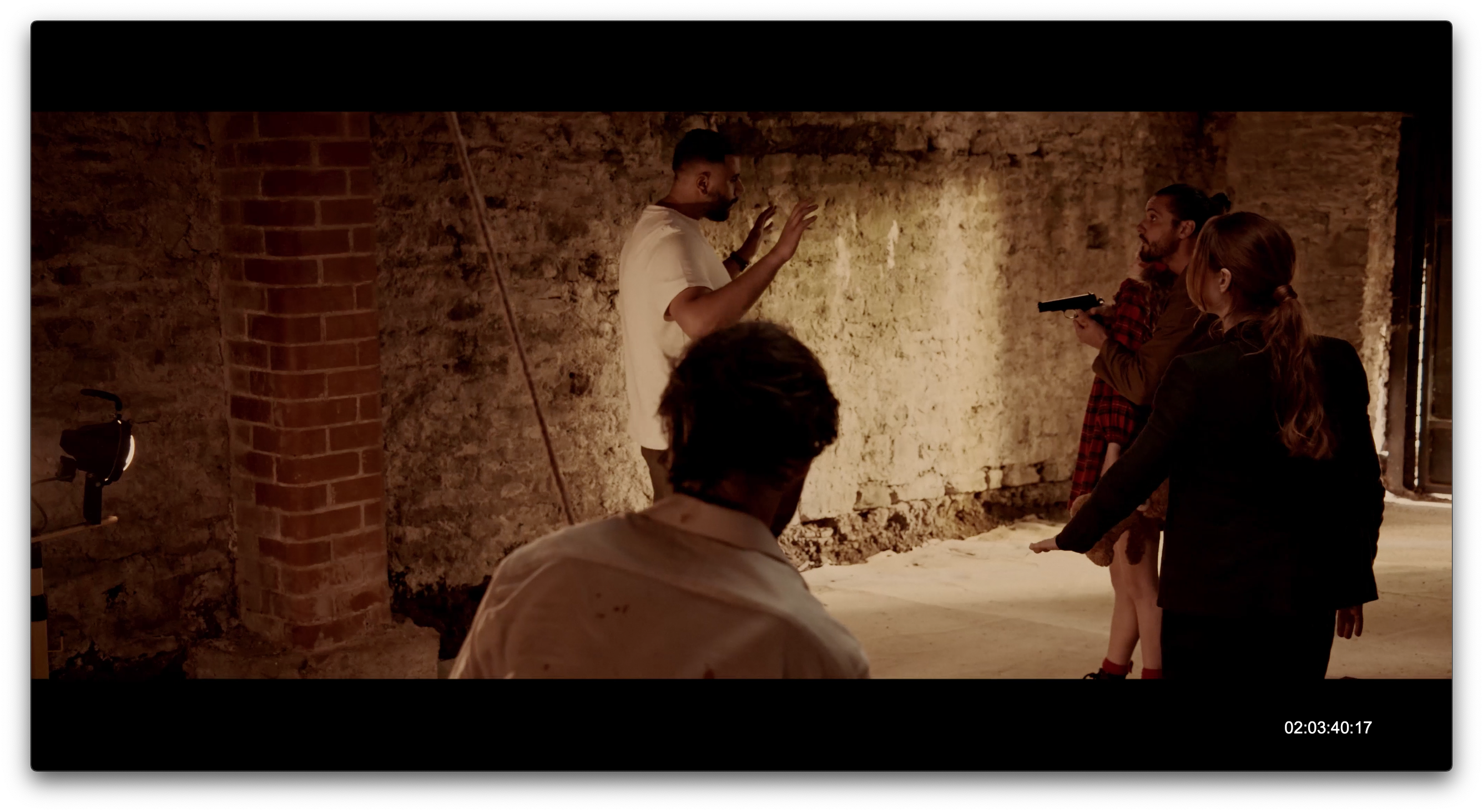
Why should
distributors buy your film?
It’s a commercial thriller. My writing
and producing partner, Jamie Mollart, and I didn’t want to make an art-house
film. Even though we were breaking new territory with a film that was shot
unlike any other film before, as we sat down with a blank page in front of us
to write…we wanted the film to appeal to a wide commercial audience.
The production values are great, thanks to our wonderful crew, and the geo-political angle is totally in-line with current world events that are in the media, across the globe, every single day.
How would you
specify your work? What characterizes your film?
Cinema verite to the next level. The
film’s performances are raw and real. The main character had never seen a
script, knew nothing about the film…not even the genre. This is raw, real
filmmaking created in a way unlike anything that’s been made before.
We’d like to think the level of realism shines through and that spontaneity is captured and carved into a riveting 90 minute real-time film.
Why did you
decided to become a filmmaker?
I wanted to tell stories. I thought it
would be through writing novels or graphic novels, but my older brother, who
knew more about cinema than anyone I know, would bring ten movies a night home
and we’d just watch every sort of film, so his influence rubbed off on me. He
was my film school while I tried to carve out a living in professional sport
that was brought to a quick end thanks to an injury. And growing up in
Vancouver, Canada, in the 1990s the industry was changing and booming. I met
people who had a lot of ideas, we just didn’t know how to get them financed.
Now, having lived in the UK for 23 years, I’ve found a group of positive, talented people who are my close collaborators.
Who is your role
model?
In film there are a lot of people I
admire. I love the way Paul Greengrass shoots a very raw style and he’s not
afraid to use non-actors, or people who aren’t names. He’s certainly been an
influence. Then, Michael Mann or Martin Scorsese’s early films like Mean Streets
and Taxi Driver which are more stylistic, but still look raw and ugly at times.
That’s the reality of life.
Which movies are
your favorites? Why?
Moneyball - A true story that changed a
multi-billion dollar industry, shot in a realistic way with understated
performances. Brilliant.
All The President’s Men - A true story about the journalistic risks that led to the downfall of a president. Natural, gripping 1970s cinema.
The Insider - A true story about how one of the largest industries in the world was forced to change. Incredible performances and Mann allows them to be real.
Mean Streets - A masterclass in how to let actors do their thing while harnessing it all and making it feel real.
The Bourne Films - Action that changed things. European, in focus, out of focus, camera all over the place and who cares, you’re on the ride and that’s all that matters.
Captain Phillips - Non actors working with Hanks directed by Greengrass. Stunning, messy, real, raw, dirty. Perfect.
Monsters - Gareth Edwards took a crew of 3 and did everything himself with no names actors and non-actors that he picked up on the day in a way that would scare the hell out of any studio. Brilliant.
Star Wars - Because it blew me away as a
kid. And Lucas released episode 4 first and had created a whole world which made
the characters so rich. Even characters with 1 second of background screen time
had back stories. Unbelievable.
Where do you
look for inspiration for your films?
In films that aren’t afraid to look real
and anything that doesn’t want to be beautiful and fake.
Which topics
interest you the most?
The real world of espionage,
geo-politics, mistrust and deceit. The dark patches of life that we want to
ignore but actually exist. They underpin the world. Sometimes for the better,
sometimes for the worse, sometimes for both.
What do you
consider your greatest achievement in your career?
Making this film, The Unlock.
My writing and producing partner, Jamie Mollart, and I devised a way to film a feature film without the main character knowing anything about the story, the script and even the genre of the film. This included how to do prep and pre-prod so everyone else was totally prepared and then move into production on a film that had investors who wanted an ROI.
We even had to isolate the lead actor, have a dead quiet set as he entered wearing a hood, and then take the hood off just seconds before saying “action”. And then we really had one take to get the scene before we put the hood back on him and led him back to a holding area where he only had contact with a makeup artist and mental health consultant.
With the help of our DOP, Mark Pullon, we figured out how to shoot it and with the help of our editor, David Francis, we figured out how to edit it together into a tight 90 minute commercial thriller.
What do you
consider most important about filming?
That you give everyone around you the
best possible experience. It will be stressful, but it can still be positive
and everyone on set is important and deserves equal respect, regardless of how
big or small their role is on a production.
You’ll make a film. It’ll come and go. Maybe it’ll be good, maybe it won’t. But it’s not open heart surgery. It’s a film. It’s the experience people have working with you that will live with them forever. And the tighter the unit, the better chance you have of getting a good result.
Which film
technique of shooting do you consider the best?
Anything that’s realistic, raw and allows
the story and acting to take centre stage. That’s what the audience wants to
see. Not noticeable camera moves or angles, sets, editing, visual FX,
music….they just want to follow the characters on a journey. They want to get
totally engrossed and hopefully forget they’re watching a film.
How would you
rate/What is your opinion about current filmmaking?
It’s great. Everything has to adapt with
the age you’re going through. Listening to people who consume content now in a
different way it was consumed in the past is important. As indie filmmakers, at
Blackout Film, we just want to create stories that resonate with a wide
contemporary audience. We think you have to listen to people who aren’t in the
industry and just want to relax at the end of the day. We produce projects that
are interesting, draw on our influences, but excite people who just want to be
entertained regardless of what they think about the craft.
What can
disappoint you in a movie?
If I feel it’s being “acted”. And more
often than not that’s the constraints that the director has put on the actors.
I love real, raw, films…but that’s just me. There are great films in all genres
that I hugely respect because they know their audience. If a film connects with
a 6 year old looking for princesses that’s great. We have to realise we’re one
person and shouldn’t think every film is geared towards us. That’s not what
makes any art form successful.
Who supports
you in your film career?
More than anyone else my amazing wife,
Penny, and my kids - Hannah and Lucas. There is no way I could do any journey
in filmmaking or in anything else without their love and support.
And in business, it’s my partner at Blackout Film, Jamie Mollart, who is more than a business partner, but a creative collaborator in every way. Unfortunately for him, we usually think along the same lines.
What are the
reactions to your film? (opinion of spectators, film critics, friends and
family)
The test audiences have responded
incredibly well to The Unlock. They loved the story and the pace…and that’s
before they realised it was a one-of-a kind film where the main character knew
nothing about the story, script or genre. When they learned that, they couldn’t
believe it. This led us to preface the film with a title card explaining what
we had done. All in all, we couldn’t be more pleased with how people have
reacted.
Have you
already visited any of the prestigious film festivals?
No.
What are your
future plans in filmmaking carriere?
I’m currently in the market for an agent,
and with my producing partner, Jamie Mollart, we have a slate of films in
various stages of development (and one moving into pre production when the SAG
strike ends) with our company Blackout Film. We have a strong business model to
move forward with other, internationally commercial, films.
WATCH TRAILER FOR THE UNLOCK on our youtube channel:
https://www.youtube.com/watch?v=F_oZy8O-9MY&t=2s
